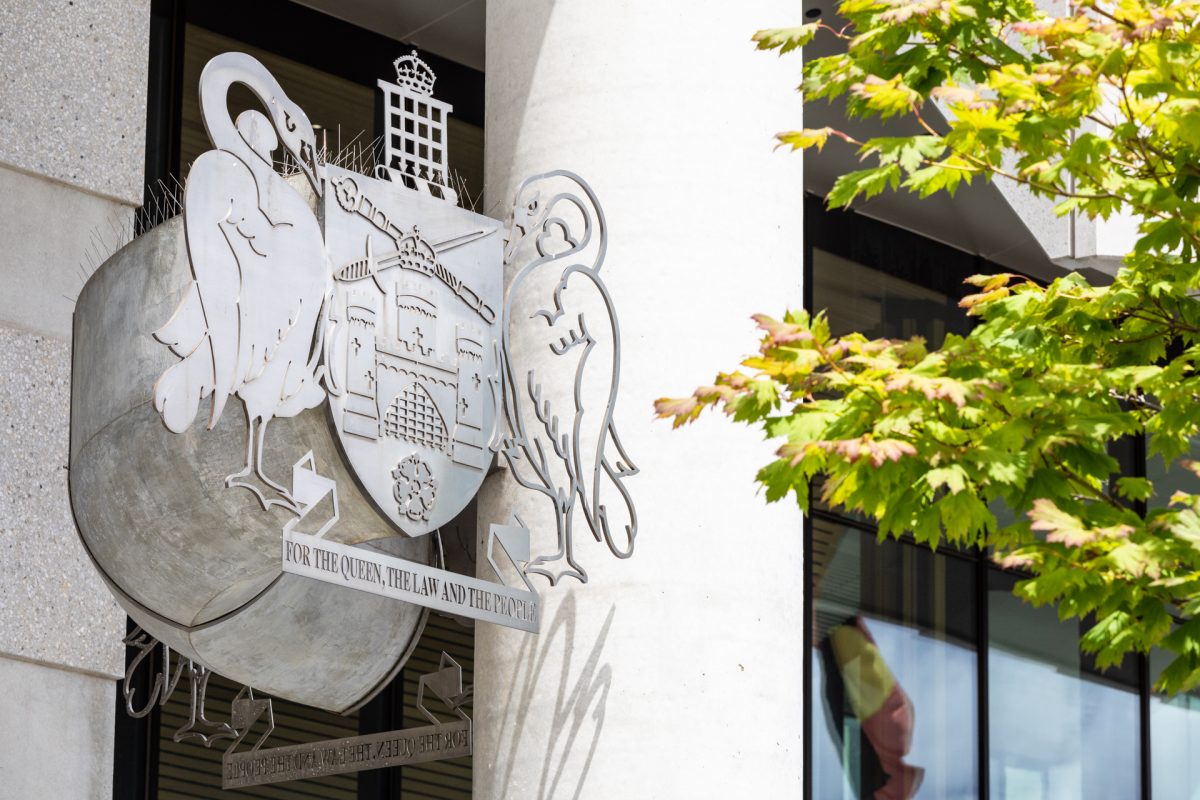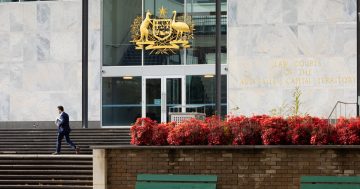
The ACT Bar Association wants the government to repeal a section of the Crimes Act that it says is shielding public authorities, such as police officers, from legal action. Photo: Michelle Kroll.
The ACT Government is taking steps to see whether a section of the Crimes Act – which puts a time limit on when a person can take legal action against police for an alleged abuse of power – should be repealed.
The ACT Bar Association has called for the “immediate repeal” of section 435, which it said has an “unjust and draconian impact” on people seeking “redress for wrongdoing” committed against them by people acting as public authorities, such as police officers and other law enforcement officials.
This covers use of police powers, such as the power to arrest, detain and use force.
“This provision mandates that actions against such persons must be commenced within six months, with stringent notice requirements, effectively shielding those acting as public authorities against whom wrongdoing is alleged from accountability and denying victims their right to justice,” the association stated.
The section hasn’t been changed since 1911 (when the Territory was formed) and has come under scrutiny in the recent case of Glavinic v Commonwealth (2023) in the ACT Supreme Court. This ruling is currently being appealed.
Regardless, ACT Bar Council president Brodie Buckland said the section was a “significant barrier to justice”.
“Its arbitrary timeframe and onerous procedural requirements disadvantage victims, particularly the vulnerable and disadvantaged in our community,” he said.
“It disproportionately affects marginalised groups, including Indigenous Australians, who are already overrepresented in encounters with law enforcement.”
This point has been highlighted recently by Hugo Law Group partner Tom Taylor.
In a letter to Chief Police Officer Scott Lee and several ACT MLAs, Mr Taylor pointed out the law could provide “immunity” to a police officer (who was “reasonably believed” to have engaged in unlawful conduct) if civil action wasn’t commenced within the “extraordinarily tight (and arbitrary) six-month timeframe”.
Mr Taylor is representing an Aboriginal girl who has claimed she was unlawfully arrested and assaulted by AFP officers in Canberra.
“During the intake procedure at the Watch House, it is alleged she kicked a male police officer in the leg who then punched her in the face,” he wrote.
“She was, at the time, 13 years of age and of slight build. She comes from a disadvantaged background.”
Mr Taylor said this could amount to child abuse but that his client could miss out on potential civil remediation because of the six-month time limit to start action, imposed simply because a police officer committed the alleged assault.
“As a result of the operation of s 435 of the Crimes Act, unless my client commences proceedings within six months of the incident, the Commonwealth of Australia and the relevant officer may well have a complete defence to her claim by reference to the outcome in Glavinic – not on the merits of the case but simply because she did not commence proceedings within six months,” he wrote.
“The reasons why a child might not commence proceedings within six months are numerous and obvious.
“Such an outcome is plainly unjust.”
Mr Taylor noted a person wishing to bring a civil claim could face additional difficulties given they were likely to be facing concurrent criminal prosecution for the offences alleged to have been committed against police.
Region approached Attorney-General Shane Rattenbury about what the government was considering in light of this appeal.
Mr Rattenbury said he wasn’t aware of the section being brought to the attention of previous ACT Governments.
“Having received these [recent] representations, I have asked the [Justice and Community Safety] Directorate to examine the impact and operation of this provision to support the Government’s consideration of the request for its repeal,” he said.
In regards to the allegations raised by Mr Taylor and his client, an ACT Policing spokesperson confirmed AFP Professional Standards had received a complaint.
“As this remains an ongoing investigation, it is not appropriate to comment further,” they said.





















